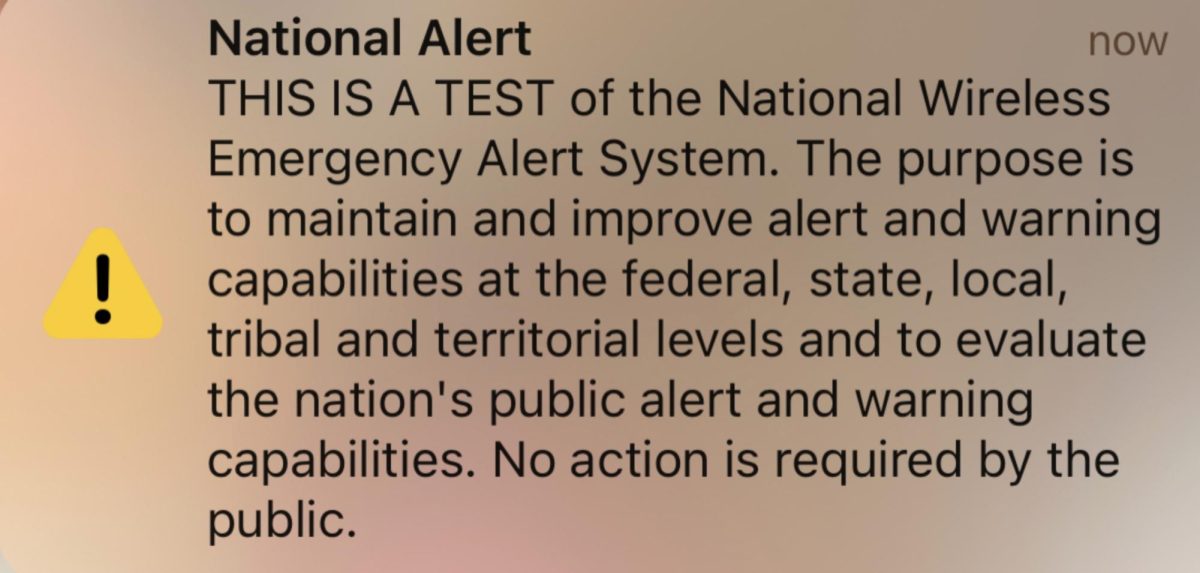During the school day, WCHS classes were interrupted by one of the most controversial alerts in recent history. On October 4th, 2023, a national security alert test went off at approximately 2:20 Eastern Time.
The purpose of these tests is to prepare the country for potential threats and make sure that everyone is informed in a state of emergency.
These alerts can, and have, saved many lives in the past, and they will continue to do so. They have numerous vital functions that include alerting people to take shelter from an oncoming tornado to clueing in a county of an amber alert.
These alerts also enhance public awareness about how future alerts will go, fostering a sense of collective responsibility. When people are well-informed, they are more likely to report suspicious activities or adhere to safety measures, making it harder for potential threats to go unnoticed.
National security alerts play a vital role in prevention and preparedness efforts. By disseminating information about potential threats, authorities can encourage citizens to prepare for emergencies by creating emergency kits, evacuation plans, and more.
While national security alerts are undeniably important, many argue otherwise. The counterargument revolves around concerns regarding civil liberties and the potential for misuse.
The collection of data required to send targeted alerts raises questions about the extent to which personal information is being monitored and used by government agencies. Some believe that the government is purely out to get us and our information, and that is the only reason these tests are run.
Some people completely powered off their cellphones to avoid the alert and protect their information from the government. What these people don’t understand is that if the government wanted to get information from a phone, they could easily do it without the alert. To truly protect one’s private information, one would have to be off of all social media platforms and have very limited use of electronic devices.
Some argue that the frequent use of national security alerts, especially for non-critical situations, can lead to desensitization. When alarms are triggered too often for minor events, people may become complacent and ignore them when a real threat emerges.
This is a fair point, but the National Alert Test only occurs once every three years. It is also prompted that it is indeed a test, and is nothing to worry about.
The alarm that went off on October 4th serves as a stark reminder of the delicate balance between national security and civil liberties. While national security alerts are vital tools in safeguarding our nation, we must still watch out for our own information’s security.















